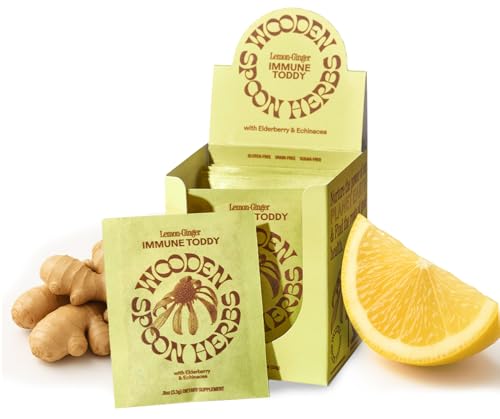Echinacea for Colds: Does It Really Work?
Quick Summary: A study found that echinacea didn't significantly shorten colds compared to a placebo (sugar pill). However, people who believed echinacea would help felt better, regardless of what they took.
Does Echinacea Help With Colds?
This research looked at whether echinacea could help people get over a cold faster. The study compared people taking echinacea, a placebo (a pill with no medicine), and no pills at all. The results? Echinacea didn't seem to make a big difference in how long or how bad a cold lasted.
What The Research Found
- Echinacea vs. Placebo: People taking echinacea didn't get over their colds any faster than those taking a placebo.
- Belief Matters: People who thought echinacea would help, actually felt better, even if they took a placebo. This suggests that your belief in a treatment can influence how you feel.
- No Immune Boost: The study didn't find that echinacea boosted the immune system in a measurable way.
Study Details
- Who was studied: 719 people with new colds. Most were white and female, aged 12-80.
- How long: The study followed people throughout their cold, measuring how long they were sick and how severe their symptoms were.
- What they took: Some people took echinacea pills, some took placebo pills (that looked the same), and some took nothing.
What This Means For You
- Think About Your Beliefs: If you believe echinacea will help, you might feel better, even if it's just the placebo effect.
- Talk to Your Doctor: Discuss your beliefs about treatments with your doctor. They can help you make informed decisions.
- Don't Rely Solely on Echinacea: While echinacea might not be a cure-all, focus on other proven cold remedies like rest, fluids, and over-the-counter medications.
Study Limitations
- Not Everyone: The study mostly included white women, so the results might not be the same for everyone.
- Placebo Effect: The study highlights the power of the placebo effect, meaning your belief in a treatment can impact your experience.
- More Research Needed: More studies are needed to fully understand how echinacea works and who it might help.
Technical Analysis Details
Key Findings
The study found no statistically significant differences in cold duration or severity between groups receiving echinacea (double-blind or open-label), placebo, or no pills. However, participants who believed echinacea was effective reported shorter (2.58 days) and less severe (-26% severity score) colds regardless of treatment, suggesting psychological factors may influence outcomes. Immune markers (interleukin 8, neutrophil counts) also showed no significant changes across groups.
Study Design
This 2011 randomized controlled trial (RCT) enrolled 719 participants with new-onset common colds, assigning them to four groups: (1) no pills (n=179), (2) double-blind placebo (n=179), (3) double-blind echinacea (n=180), or (4) open-label echinacea (n=181). The study assessed outcomes over the course of the cold. Demographics: 64% female, 88% white, ages 12–80.
Dosage & Administration
Participants in echinacea groups received Echinacea purpurea (20.5 mg) in identical pill form, administered with a standardized dosing protocol (exact schedule unspecified in summary). Placebo pills matched echinacea in appearance. Open-label echinacea participants were informed of their treatment, while others remained blinded.
Results & Efficacy
- Illness Duration:
- No-pill: 7.03 days
- Double-blind placebo: 6.87 days
- Double-blind echinacea: 6.34 days
- Open-label echinacea: 6.76 days
-
No significant differences (e.g., echinacea vs. placebo: -0.49 days, 95% CI -1.19 to 0.21).
-
Global Severity Scores:
- No-pill: 286
- Double-blind placebo: 264
- Double-blind echinacea: 236
- Open-label echinacea: 258
-
No significant differences (e.g., echinacea vs. placebo: -28 points, 95% CI -76 to 20).
-
Subgroup Analysis:
Among 120 participants who rated echinacea’s effectiveness >50/100: - Illness duration: 2.58 days shorter (95% CI -4.47 to -0.68) for placebo vs. no-pill group.
- Severity: 26% lower (95% CI -249.8 to 55.8) in placebo vs. no-pill group.
-
No significant differences between double-blind echinacea and open-label echinacea.
-
Immune Markers:
Interleukin 8 and neutrophil changes were non-significant across groups.
Limitations
- Demographics: 88% white, 64% female; limited generalizability to other populations.
- Placebo Effects: Open-label echinacea may have diluted expectations, reducing psychological impact.
- Dosing Uncertainty: Summary lacks specific dosing schedules (e.g., frequency, duration).
- Subgroup Reliance: Post-hoc analysis of believers may introduce bias; larger studies isolating belief effects are needed.
- Short-Term Focus: Outcomes measured during acute cold phase; long-term effects unassessed.
Clinical Relevance
For supplement users, this study suggests echinacea’s efficacy for colds may not exceed placebo when accounting for belief effects. However, participants who believed in echinacea experienced clinically meaningful reductions in symptoms regardless of treatment, highlighting the role of patient expectations in perceived outcomes. Clinicians might consider discussing placebo effects and patient beliefs when recommending supplements, as psychological factors could influence recovery. Larger trials with diverse populations and explicit dosing protocols are needed to confirm these trends.
Original Study Reference
Placebo effects and the common cold: a randomized controlled trial.
Source: PubMed
Published: 2011
📄 Read Full Study (PMID: 21747102)


